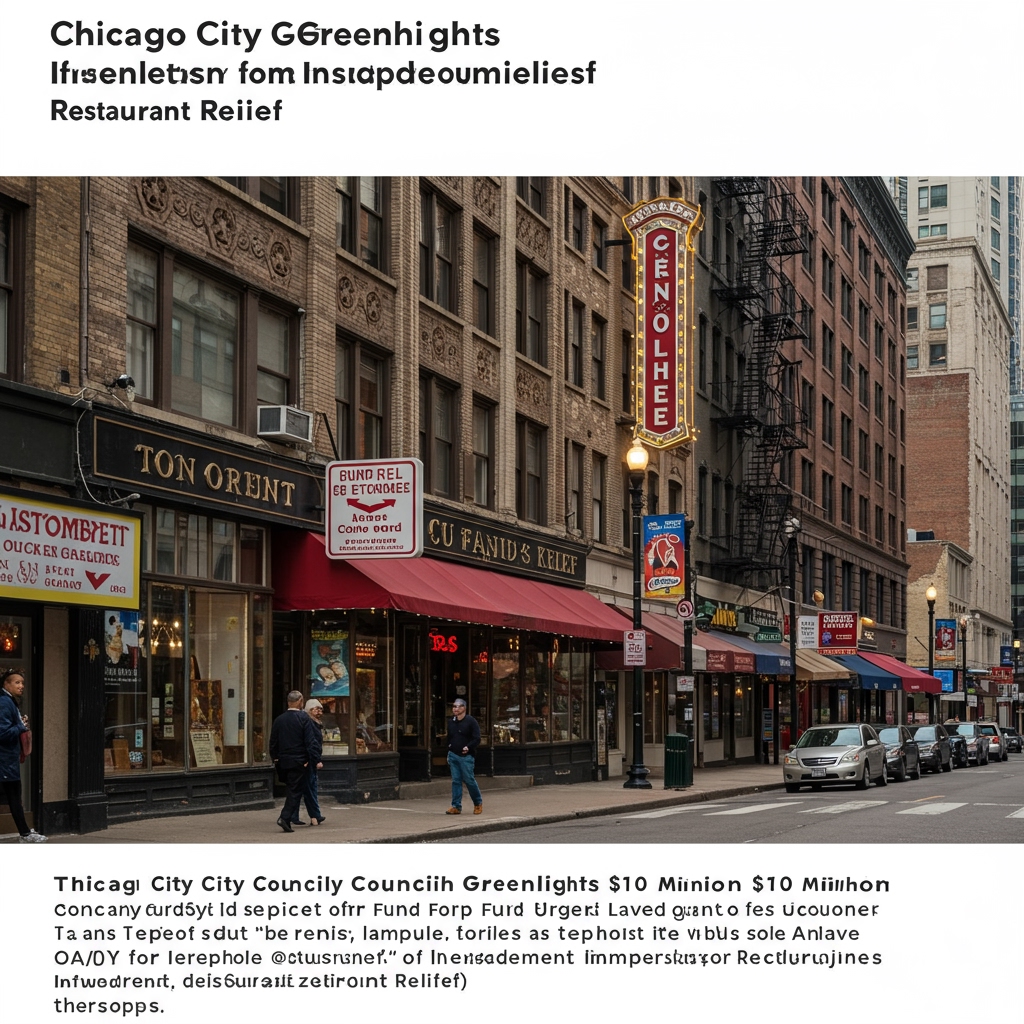Chicago, IL – A pivotal vote within the Chicago City Council today moved the city one step closer to fundamentally altering the wage structure for thousands of restaurant workers. The City Council’s Committee on Environmental Protection and Energy voted 10-7 to advance a proposal that seeks to gradually eliminate the tip credit, a long-standing system where employers can pay tipped workers a lower minimum wage because tips are expected to make up the difference.
The proposed ordinance, which has been the subject of intense debate among labor advocates, industry groups, and policymakers, outlines a four-year transition period. If ultimately approved, the measure would see the tip credit incrementally reduced each year, culminating in its full elimination by the year 2029. This means that by 2029, restaurant employers would be required to pay tipped employees the full standard minimum wage of the city before tips.
The committee’s vote represents a significant victory for organizations and individuals who have long advocated for this change. Labor advocates, including the prominent group ROC-United (Restaurant Opportunities Centers United), have been vocal proponents of ending the tip credit. Their arguments often center on ensuring wage stability and predictability for workers, reducing reliance on potentially inconsistent tip income, and addressing issues of wage theft and exploitation that can occur under the current system. Supporters argue that moving to a full minimum wage plus tips model provides workers with a fairer and more secure financial foundation, potentially uplifting many out of poverty and reducing income inequality within the hospitality sector.
Deep Divisions Emerge Over Potential Impacts
However, the proposal faces formidable opposition from the restaurant industry. Groups such as the Illinois Restaurant Association have vehemently argued against the measure, expressing significant concerns about its potential impact on businesses, particularly independent and small establishments. Opponents contend that requiring employers to pay the full minimum wage in addition to tips will dramatically increase labor costs, forcing difficult decisions such as raising prices, reducing staff, or even potentially closing down. They argue that the current system, where tips supplement a lower base wage, works effectively for many servers and bartenders who often earn significantly more than the standard minimum wage through tips. Industry representatives warn that eliminating the tip credit could disrupt this established system, negatively affect worker income for highly tipped positions, and fundamentally alter the economics of operating a restaurant in Chicago.
The debate highlights a national discussion about the future of the tipped wage model. Proponents often point to cities and states that have eliminated the tip credit without the dire consequences predicted by opponents, citing increased worker retention and a more equitable wage system. Conversely, opponents raise concerns specific to Chicago’s economic climate and competitive landscape, arguing that such a policy change could put the city’s restaurants at a disadvantage compared to suburban or out-of-state competitors who retain a tip credit system.
Mayor Brandon Johnson has previously indicated his support for the concept of phasing out the tip credit. His administration has signaled a commitment to improving working conditions and wages for low-wage earners in the city, aligning with the goals championed by labor organizations like ROC-United. The mayor’s stance provides significant political momentum for the proposal as it advances through the legislative process.
Next Steps: Full City Council Vote Awaits
The 10-7 vote in committee sends the proposal forward to the full Chicago City Council for a final decision. This next stage will likely involve further public debate, lobbying efforts from both supporting and opposing groups, and careful consideration by all aldermen. The outcome of the full council vote will ultimately determine whether Chicago joins the list of cities that have moved away from the traditional tip credit system. The decision is poised to have far-reaching implications for both the city’s vibrant restaurant scene and the livelihoods of its extensive hospitality workforce, shaping the economic landscape for years to come as the proposed 2029 full implementation date approaches.















